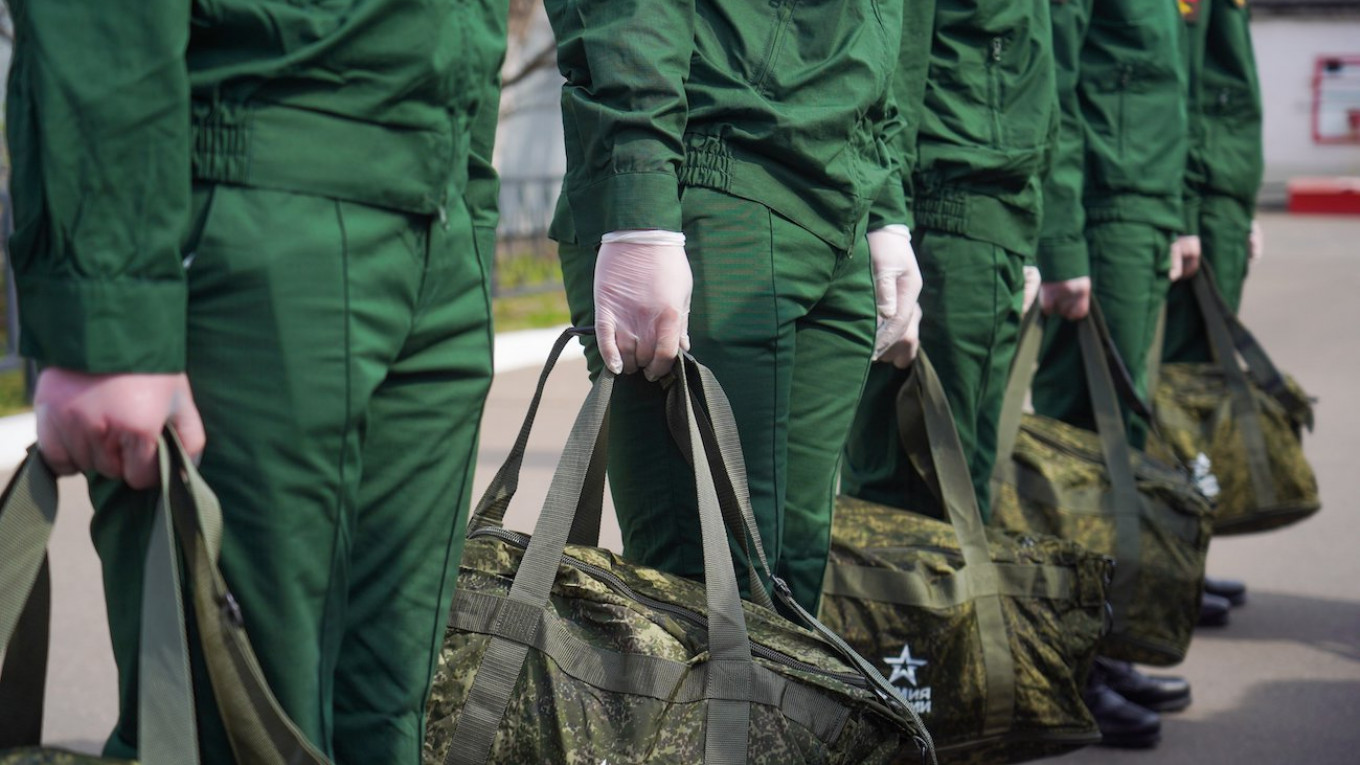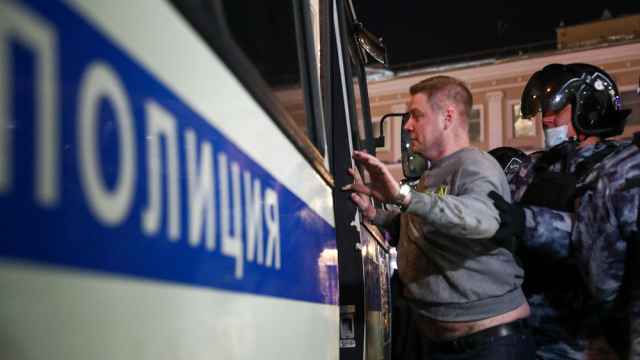In December 2019, police officers came to Ruslan Shaveddinov's Moscow apartment, sawed through the door and placed him in handcuffs before whisking him away for forced military service in the Arctic.
Denied access to a cell phone — a rule violation, according to the 25-year-old opposition activist — he had to correspond with his loved ones via handwritten letters that took weeks to arrive.
"They sent me as far away as possible," the ally of jailed Kremlin critic Alexei Navalny told AFP.
Sequestered for one year to a military post accessible only by helicopter and surrounded by roaming polar bears, Shaveddinov said he and the other four soldiers at the base even had to melt snow for drinking water.
"It was like I had been exiled, with no connection to the outside world, in these unliveable conditions," he recalls.
While military service is mandatory in Russia, with more than 250,000 men between the ages of 18 and 27 conscripted each year, many Russians get out of it through medical or educational exemptions. Some also simply ignore the summons or pay bribes.
But for those harboring opposition sympathies, avoiding service is a more complicated endeavor.
The opposition and rights activists say conscription in recent years has become another weapon in the authorities' arsenal in their drive to silence dissent.
In Shaveddinov's case, authorities had taken an interest in him that summer when Navalny's aides organized protests in Moscow demanding fair elections.
They also riled authorities that autumn by launching a voting strategy that saw Kremlin-linked candidates lose races in local polls.
Shaveddinov says he provided proof he was medically unfit for military service, though his appeals were shut down three times.
'Punishment without crime'
But Shaveddinov says he didn't think his activism could result in forced conscription, in what he likened to the Soviet-era practice of exiling dissidents to the Gulag network of labor camps.
"It was impossible to imagine that such a practice would return to Russia," he said.
"That politically undesirable people would be sent into exile."
Shaveddinov is one of three prominent Navalny allies who have been sent to the army against their will in the past five years. Four others have been prosecuted for evading military obligations.
Years before Shaveddinov's case, human rights defender Oleg Kozlovsky was arrested in 2007 and sent to a military base in central Russia despite being exempt as a full-time student.
"My case was a dangerous precedent. These methods began to be used over and over again," says the 36-year-old Amnesty International researcher.
Describing conscription as "punishment without crime," Kozlovsky said it was "a way of isolating a person, cutting them off from contacts" and is used "when it is difficult or impossible to fabricate a criminal case."
The researcher believes cases involving well-known opposition activists are just the "tip of the iceberg," accusing law enforcement of routinely sending details of protesters to the army to check whether they have skipped out on military service.
He pointed to Moscow rallies in the summer of 2019, when the Investigative Committee, which probes major crimes in Russia, said it had identified "134 cases of military evasion" among detained protesters.
And this year, after mass rallies in support of Navalny in January and February, the committee's head Alexander Bastrykin ordered investigators to probe whether any had evaded service.
The defense ministry did not respond to AFP requests for comment.
'School of slavery'
In the town of Luga about 100 kilometers south of Saint Petersburg, Margarita Yudina is indignant that her two sons, 24-year-old Robert and 20-year-old Rostislav, have recently been summoned for military service.
She blames their situation on her "political activities" and says she will fight for her children, one of whom is diabetic, not to be sent to "a school of slavery."
In January, video footage went viral showing Yudina being kicked in the stomach by a police officer, sending her tumbling onto the pavement during a rally in Navalny's support.
She had publicly denounced her assault and filed a complaint.
"It's pressure, mockery and harassment so that I will speak up less and not look for who beat me up," says the 54-year-old woman.
She also worries that her sons will be hazed — a problem that is still rife in the army even though it dropped significantly, experts say, when Russia in 2008 reduced mandatory service from two years to one to prevent older recruits from beating younger ones.
While President Vladimir Putin has said that conscription is becoming a historical relic, it remains a steadfast part of Russian policy in a country that is always prepared to be invaded.
And as long as it persists, Vsevolod Gunkov, a 19-year-old libertarian activist in Siberia's Altai region, plans on skipping his service.
Although he already narrowly escaped in December by filing an appeal, conscription resumed in April, and Gunkov was summoned once again.
The activist, however, says he will not go down without a fight.
"Everything is unpredictable. Let's see."
A Message from The Moscow Times:
Dear readers,
We are facing unprecedented challenges. Russia's Prosecutor General's Office has designated The Moscow Times as an "undesirable" organization, criminalizing our work and putting our staff at risk of prosecution. This follows our earlier unjust labeling as a "foreign agent."
These actions are direct attempts to silence independent journalism in Russia. The authorities claim our work "discredits the decisions of the Russian leadership." We see things differently: we strive to provide accurate, unbiased reporting on Russia.
We, the journalists of The Moscow Times, refuse to be silenced. But to continue our work, we need your help.
Your support, no matter how small, makes a world of difference. If you can, please support us monthly starting from just $2. It's quick to set up, and every contribution makes a significant impact.
By supporting The Moscow Times, you're defending open, independent journalism in the face of repression. Thank you for standing with us.
Remind me later.






